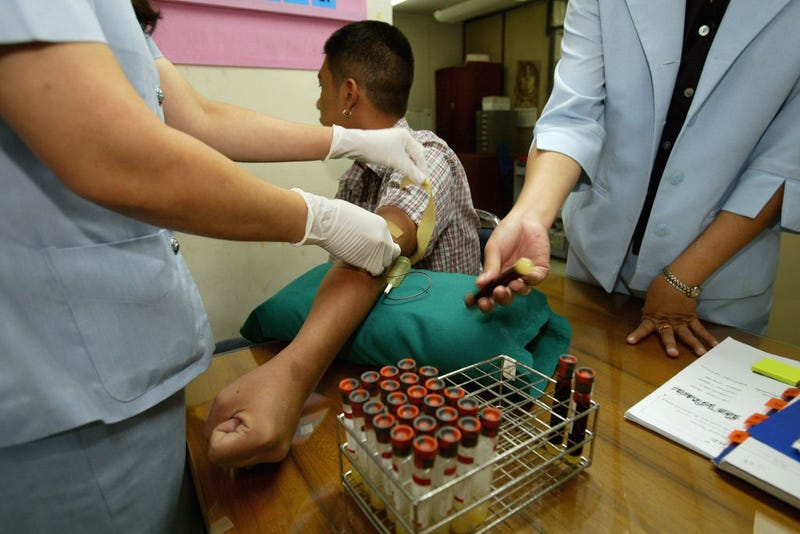
The technology that has made the COVID-19 vaccines so effective at warding off the worst effects of the coronavirus is now being put to the test against a different illness, one whose code scientists have been trying to crack for around four decades.
The mRNA method of fighting off COVID is the key mechanism in an experimental new HIV vaccine that is now entering human trials.
The mRNA technology in the COVID vaccine works because, upon injection, it initiates an immune response in the human body through the creation of a protein. The method is used in both the Moderna and Pfizer COVID vaccines. Now Moderna is hoping to beat back the scourge of HIV with the same vaccination technology, funding the research alongside the nonprofit International Aids Vaccine Initiative (IAVI).
56 HIV-negative adults will participate in the trial’s first phase, allowing themselves to be monitored by researchers. The testing represents the first ever human trial of an HIV vaccine utilizing the mRNA system.
Seven different past attempts at the creation of an HIV vaccine made it to full-scale human trials, but all seven failed to yield a workable vaccine.
This latest attempt began last week, according to a statement released by Moderna which also outlined how they hope the vaccine will work – by creating proteins in the human body that trigger an immune response to HIV, the same way the COVID vaccine works.
The HIV immunogens created would hopefully create an immunity towards a wide range of HIV variants, which “is widely considered to be a goal of HIV vaccination, and this is the first step in that process,” the statement read.
Likewise, IAVI president Mark Feinberg released a statement that read, in part, “The search for an HIV vaccine has been long and challenging… Having new tools in terms of immunogens and platforms could be the key to making rapid progress toward an urgently needed, effective HIV vaccine.”

